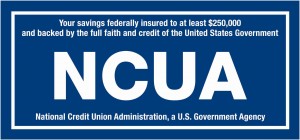The Basics of Banking
By Members Choice Credit Union Staff
Banking is an integral part of our daily lives, playing a crucial role in managing our finances and facilitating economic activities. Whether you’re opening your first account or looking to deepen your understanding of financial services, these basics of banking will help build a solid foundation for your financial well-being.
What are banks and credit unions?
At their core, banks and credit unions are financial institutions that provide various services including accepting deposits, granting loans, and exchanging money on your behalf. They serve as intermediaries, connecting buyers and sellers, depositors, and borrowers.
Banks vs. Credit Unions: What’s the difference?
Credit Unions and banks appear to be identical. However, there are many ways the two options operate differently and offer unique benefits:
- Ownership and Structure
- Bank: Banks are typically for-profit institutions owned by shareholders or investors. Shareholders elect a board of directors to oversee the bank’s operations.
- Credit Union: Credit Unions are not-for-profit cooperatives owned by their members. Members elect a volunteer board of directors from within their own membership.
- Membership
- Bank: Banks are open to the general public, and customers become clients by opening accounts or obtaining financial services.
- Credit Union: Credit unions have membership criteria, and individuals must meet certain eligibility requirements to join. Common criteria include employment within a specific industry, association with a particular organization, or living in a specific geographic area.
- Profit Motive
- Bank: Banks are driven by a profit motive, aiming to maximize returns for their shareholders.
- Credit Union: Credit unions operate on a not-for-profit basis. Any profits generated are typically returned to members in the form of better interest rates, lower fees, or improved services.
Core Services
Checking Accounts: Designed for everyday transactions, checking accounts enable account holders to write checks, use debit cards, and make electronic transfers.
Savings Accounts: These accounts allow individuals to earn interest on their deposits while providing easy access to funds.
Certificate of Deposit (CD): A savings account designed to allow members to deposit funds for a specified period at a fixed interest rate. These have a predetermined term which the funds must remain on deposit. CDs often offer higher interest rates compared to regular savings or checking accounts. The longer the term of the CD, the higher the interest rate is likely to be.
Money Market Accounts: A type of interest-bearing deposit account that will often strike a balance between liquidity and higher interest rates.
Loans: Loans are financial arrangements in which a credit union provides a sum of money to an individual. In return, the borrower agrees to repay the loan along with interest over a specified period. Loans can be used for various purposes, such as buying a home, auto, RV, watercraft, etc. The terms of the loan, including interest rates, repayment schedules, and collateral requirements, vary depending on the type of loan and lending institution.
Online Banking: Online banking revolutionizes the way we manage our finances by providing a digital platform for financial transactions and account management. Through secure websites or mobile apps, individuals can check balances, transfer funds, and pay bills all on the go.
As you navigate the waters of financial well-being, it’s essential to be aware of the various services offered by credit unions and how they can benefit you. Whether you’re saving for the future, applying for a loan, or simply managing day-to-day transactions, a solid understanding of banking basics will empower you to make informed financial decisions.




